
0
+
Google Reviews

0
+
4.6 (2096 Ratings)
AWS Cloud Industry Training By Anand Tiwari. – Offline @ Aundh Pune
1] Designing and deploying scalable, highly available, and fault tolerant systems on AWS
2] Lift and shift of an existing on-premises application to AWS
3] Ingress and egress of data to and from AWS
4] Selecting the appropriate AWS service based on data, compute, database, or security requirements
5] Identifying appropriate use of AWS architectural best practices
6] Estimating AWS costs and identifying cost control mechanism


Curriculum Designed by Experts
AWS Solutions Architect ==> AWS Sysops Administration ==> AWS DevOps Engineer
AWS certification training in pune
******************************************
Note : Each AWS lecture will be followed by a hands-on demo/activity wherever applicable
Getting Started :
Course Introduction
About the Training Architect
Working as a Solutions Architect
Creating an AWS Account, AWS Free Tier, Usage Tracking, and Billing Widget
Access Management
Shared Responsibility/Security Model
Service Models
High Availability vs. Fault Tolerance
RPO vs. RTO
Scaling
Tiered Application Design
Encryption
Architecture Odds and Ends
Architecture 101
AWS Architecture :
AWS Accounts
AWS Physical and Networking Layer
Well-Architected Framework
Elasticity
AWS Architecture 101
AWS Product Fundamentals :
Console Tour and Navigation
Introduction to S3
Introduction to CloudFormation
Hands-on Labs
Getting Started with CloudFormation
AWS Product Fundamentals
IAM (Identity and Access Management) :
IAM Essentials
IAM Policies
IAM Users
IAM Groups
IAM Access Keys
Securing Your Account — Creating an IAM User and Setting Up the CLI
IAM Roles
IAM Essentials
Multi-Account Management and Organizations :
AWS Organizations
Role Switching Between Accounts
Multi-Account Management and Organizations
Server-Based Compute (EC2) Fundamentals :
EC2 Architecture: Part 1
EC2 Architecture: Part 2
Instance Types and Sizes
EC2 Storage Architecture: Part 1
EC2 Storage Architecture: Part 2
EBS Snapshots
Security Groups
Instance Metadata
Hands-on Labs
Creating and Working with an EC2 Instance
Server-Based Compute (EC2) Fundamentals
Server-Based Compute (EC2) Intermediate :
AMI
Bootstrap
Instance ENI, IP, and DNS: Part 1
Instance ENI, IP, and DNS: Part 2
Instance Roles
Server-Based Compute (EC2) Intermediate
Using EC2 Roles and Instance Profiles
Using AWS Tags and Resource Groups
Server-Based Compute (EC2) Advanced :
EBS Volume and Snapshot Encryption
EBS Optimization, Enhanced Networking, and Placement Groups
EC2 Billing Models: Part 1 – Spot and Spot Fleet
EC2 Billing Models: Part 2 – Reserved Instances
Dedicated Hosts
Server-Based Compute (EC2) Advanced
Serverless Compute (Lambda) :
What Are APIs and Microservices?
Serverless and Event-Driven Architectures
Lambda Essentials: Part 1
Lambda Essentials: Part 2
API Gateway Essentials: Part 1
API Gateway Essentials: Part 2
Step Functions
Serverless Compute (Lambda)
Container-Based Compute and Microservices :
Docker Essentials
ECS
Container-Based Compute and Microservices
Networking Fundamentals :
Introduction
Seven-Layer OSI Model: Part 1
Seven-Layer OSI Model: Part 2
IP Addressing Basics
Subnetting
IP Routing
Firewalls
Proxy Servers
Networking Fundamentals
Virtual Private Cloud (VPC) :
Virtual Private Cloud (VPC) and Subnets: Part 1
Virtual Private Cloud (VPC) and Subnets: Part 2
Routing and Internet Gateway
Bastion Host/JumpBox
NAT, NAT Instance, and NAT Gateway: Part 1
NAT, NAT Instance, and NAT Gateway: Part 2
Network ACLs
Hands-on Labs
Designing and Building a Custom VPC from Scratch
Virtual Private Cloud (VPC)
Advanced VPC :
VPC Peering: Part 1
VPC Peering: Part 2
VPC Endpoints: Part 1
VPC Endpoints: Part 2
IPv6 within AWS
Egress-Only Gateway
Hands-on Labs
Implementing VPC Peering on AWS
Advanced VPC
Global DNS (Route 53) Fundamentals :
DNS 101
Domain Registration
Private vs. Public Hosted Zones
Record Set Types
Health Checks
Global DNS (Route 53) Fundamentals
Global DNS (Route 53) Advanced :
Routing Policy: Simple
Routing Policy: Failover
Routing Policy: Weighted
Routing Policy: Latency
Routing Policy: Geolocation
Global DNS (Route 53) Advanced
S3 Architecture and Features :
Permissions
Transferring Data to S3
Encryption
Static Websites and CORS
Object Versioning
Presigned URLs
Hands-on Labs
Creating a Static Website Using Amazon S3
S3 Performance and Resilience :
Storage Tiers/Classes
Lifecycle Policies and Intelligent-Tiering
Cross-Region Replication (CRR)
CloudFront :
CloudFront Architecture: Part 1
CloudFront Architecture: Part 2
OAI
Network File Systems :
EFS Fundamentals: Part 1
EFS Fundamentals: Part 2
Storage and Content Delivery
Database Fundamentals :
Database Models
SQL — RDS :
RDS Essentials: Part 1
RDS Essentials: Part 2
RDS Backups and Restore
RDS Resiliency: Multi-AZ
RDS Read Replicas
Database Fundamentals and SQL — RDS
SQL — Aurora :
Aurora Essentials: Part 1
Aurora Essentials: Part 2
Parallel Queries and Aurora Global
Aurora Serverless Essentials: Part 1
Aurora Serverless Essentials: Part 2
SQL — Aurora
NoSQL :
DynamoDB Essentials: Part 1 — Tables and Items
DynamoDB Essentials: Part 2 — Query and Scan
DynamoDB Essentials: Part 3
DynamoDB Performance and Billing
DynamoDB Streams and Triggers
DynamoDB Indexes: Part 1 — LSI
DynamoDB Indexes: Part 2 — GSI
NoSQL
In-Memory Caching :
DAX
ElastiCache
In-Memory Caching
Load Balancing and Auto Scaling :
Load Balancing Fundamentals
Classic Load Balancers and Health Checks: Part 1
Classic Load Balancers and Health Checks: Part 2
Classic Load Balancers and Health Checks: Part 3
Application Load Balancers: Part 1
Application Load Balancers: Part 2
Network Load Balancers
Launch Templates and Configurations
Auto Scaling Groups: Part 1
Auto Scaling Groups: Part 2
Hands-on Labs
Implementing an Auto Scaling Group and Application Load Balancer in AWS
VPN and Direct Connect :
VPC VPN (IPsec)
Direct Connect Architecture
When to Pick Direct Connect vs. VPN
Snow* :
Snowball, Snowball Edge, and Snowmobile
Data and DB Migration :
Storage Gateway 101
Database Migration Service 101
Identity Federation and SSO :
What Is Identity Federation?
When to Use Identity Federation
Hybrid and Scaling
Application Integration :
Simple Notification Service (SNS)
Simple Queue Service (SQS): Part 1
Simple Queue Service (SQS): Part 2
Elastic Transcoder
Application Integration
Analytics :
Athena
Elastic MapReduce (EMR)
Kinesis and Firehose
Redshift
Analytics
Logging and Monitoring :
CloudWatch
CloudWatch Logs
CloudTrail
VPC Flow Logs
Hands-on Labs
Custom Logging Using CloudWatch and CloudWatch Logs
Hands-on Labs
Working with AWS VPC Flow Logs for Network Monitoring
Logging and Monitoring
Operations :
CloudWatch Events
KMS Essentials: Part 1
KMS Essentials: Part 2
Deployment :
Elastic Beanstalk
OpsWorks
Operations and Deployment
The Exam :
How to Prepare for the Real Exam
AWS Solutions Architect Associate (SAAC01) – Final Practice Exam
Course Features :
This course can help prepare you for a certification exam.
Earn a Certificate of Completion
When you complete this course, you’ll receive a certificate of completion as proof
An advanced storage course covering Direct-Attached Storage (DAS), Storage Area Networks (SAN), Network-Attached Storage (NAS), and Object Storage design and implementation would typically delve into the intricate details of storage architectures, protocols, technologies, and best practices. Here’s an outline of what such a course might include:
1. Introduction to Advanced Storage Concepts:
2.Direct-Attached Storage (DAS):
3. Storage Area Networks (SAN):
4. Network-Attached Storage (NAS):
5. Object Storage:
6. Storage Virtualization and Management:
7. Data Protection and Disaster Recovery:
8. Security and Compliance:
9. Scalability and Performance Optimization:
10. Case Studies and Hands-On Labs:
11. Best Practices and Industry Trends:
An advanced course on Level 3 (L3) networking and network troubleshooting with end-to-end VPC (Virtual Private Cloud) design would cover a comprehensive range of topics related to networking architectures, protocols, troubleshooting methodologies, and best practices for designing and managing VPCs in cloud environments. Here’s an outline of what such a course might include:
1.Networking Fundamentals Review:
2. Advanced Routing and Switching:
3. Network Troubleshooting Methodologies:
4. Network Security:
5. VPC Design and Implementation:
6. Advanced VPC Configurations:
7. Hybrid Cloud Networking:
8. Case Studies and Hands-On Labs:
9. Best Practices and Industry Trends:
Designing a complete database system with real-time RDS failover involves careful planning and implementation to ensure high availability, fault tolerance, and data integrity. Below is an outline of the components and considerations involved in such a design:
AWS RDS Multi-AZ Deployment:
1.Monitoring and Alerting:
2.Incident Response and Troubleshooting:
3. Infrastructure Management:
4. Security and Compliance:
5. Backup and Disaster Recovery:
6. Cost Management and Optimization:
7. Automation and Scripting:
Advance your career with INDUSTRY AWS CERTIFIED SOLUTIONS ARCHITECT Course Training! Master in-demand skills, including cloud architecture, security, and deployment. This course offers hands-on projects, global certification, and industry recognition. Why wait? Enroll today to unlock high-paying IT roles and become a certified AWS expert in the booming cloud industry!
Unlock top career opportunities with INDUSTRY AWS CERTIFIED SOLUTIONS ARCHITECT Course Training! This certification provides opportunities to professions like AWS Solutions Architect, Cloud Engineer, and DevOps Expert. Gain hands-on skills, industry recognition, and global certification to excel in the booming cloud domain. Enroll today for a high-paying, future-ready career !
Accelerate cloud adoption with INDUSTRY AWS CERTIFIED SOLUTIONS ARCHITECT Course Training! Learn to design scalable cloud solutions, optimize deployments, and ensure security. This course equips you with industry-recognized skills and global certification, making you a valuable asset in the fast-growing cloud technology sector. Enroll now for future success!
Master scalability and flexibility with INDUSTRY AWS CERTIFIED SOLUTIONS ARCHITECT Course Training! Learn to design adaptable cloud solutions, handle dynamic workloads, and optimize performance. Gain global certification and in-demand expertise to excel in cloud-driven industries. Enroll today and shape a career in scalable cloud technology!
Optimize cloud expenses and boost business efficiency with our comprehensive "INDUSTRY AWS CERTIFIED SOLUTIONS ARCHITECT" Course Training. Gain in-depth expertise in cost management, cloud architecture, and AWS solutions. Enroll today to elevate your skills and achieve career success in the cloud industry!
The " "Professional AWS Certified Solutions Architect"" training course enables professionals with advanced Security and Compliance skills. Master AWS best practices, build secure architectures, and ensure regulatory adherence. Enroll now to excel in cloud security and unlock top industry opportunities with this in-demand certification program
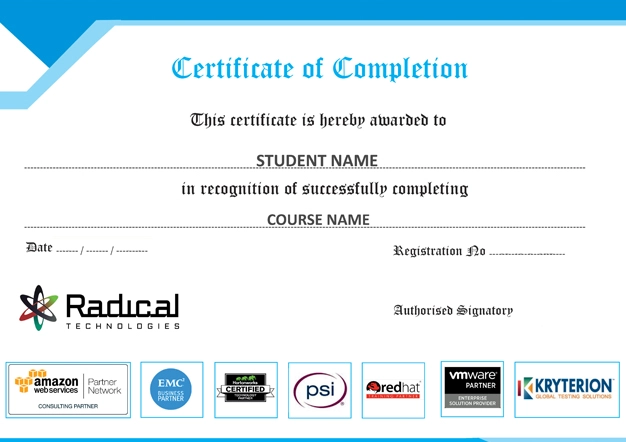


At Radical Technologies, we are committed to your success beyond the classroom. Our 100% Job Assistance program ensures that you are not only equipped with industry-relevant skills but also guided through the job placement process. With personalized resume building, interview preparation, and access to our extensive network of hiring partners, we help you take the next step confidently into your IT career. Join us and let your journey to a successful future begin with the right support.
At Radical Technologies, we ensure you’re ready to shine in any interview. Our comprehensive Interview Preparation program includes mock interviews, expert feedback, and tailored coaching sessions to build your confidence. Learn how to effectively communicate your skills, handle technical questions, and make a lasting impression on potential employers. With our guidance, you’ll walk into your interviews prepared and poised for success.
At Radical Technologies, we believe that a strong professional profile is key to standing out in the competitive IT industry. Our Profile Building services are designed to highlight your unique skills and experiences, crafting a resume and LinkedIn profile that resonate with employers. From tailored advice on showcasing your strengths to tips on optimizing your online presence, we provide the tools you need to make a lasting impression. Let us help you build a profile that opens doors to your dream career.

Infrastructure Provisioning
Implementing automated infrastructure provisioning and configuration management using Ansible. This may include setting up servers, networking devices, and other infrastructure components using playbooks and roles.

Applications Deployment
Automating the deployment and orchestration of applications across development, testing, and production environments. This could involve deploying web servers, databases. middleware, and other application components using Ansible

Continuous Integration
Integrating Ansible into CI/CD pipelines to automate software. build, test, and deployment processes. This may include automating the creation of build artifacts, running tests, and deploying applications to various environments.

The weekend batches for the Industry AWS Certified Solutions Architect Online Classes in Bengaluru at Radical Technologies were convenient and well-organized.
Radical Technologies offers unmatched support and guidance in the Industry AWS Certified Solutions Architect Training in Bengaluru, from course enrollment to certification.
The lab sessions during the Industry AWS Certified Solutions Architect Classes in Bengaluru were highly interactive, giving me confidence in using AWS tools.
The trainers’ real-world expertise added immense value to the Industry AWS Certified Solutions Architect Certification in Bengaluru at Radical Technologies.
I was impressed by the quality of materials and lectures provided in the Industry AWS Certified Solutions Architect Course in Bengaluru at Radical Technologies.
The focus on practical application during the Industry AWS Certified Solutions Architect Online Training in Bengaluru made it a highly productive learning experience.
Radical Technologies offers the best Industry AWS Certified Solutions Architect Institute in Bengaluru, with a well-structured syllabus and supportive trainers.
The customized content of the Industry AWS Certified Solutions Architect Corporate Training in Bengaluru at Radical Technologies met our organizational requirements perfectly.
Thanks to Radical Technologies, I cleared the Industry AWS Certified Solutions Architect Online Certification in Bengaluru with ease. The mock tests were extremely helpful.
The Industry AWS Certified Solutions Architect Online Course in Bengaluru is ideal for working professionals like me who need flexibility and in-depth training.
I was able to switch to a cloud-focused role after completing the Industry AWS Certified Solutions Architect Online Classes in Bengaluru at Radical Technologies.
Radical Technologies has the best trainers for the Industry AWS Certified Solutions Architect Training in Bengaluru, ensuring every concept is well explained.
The interactive sessions during the Industry AWS Certified Solutions Architect Classes in Bengaluru kept me engaged and made the learning process enjoyable.
The Industry AWS Certified Solutions Architect Certification in Bengaluru at Radical Technologies gave me a clear understanding of AWS services and architectural best practices.
Radical Technologies stands out for its comprehensive approach to the Industry AWS Certified Solutions Architect Course in Bengaluru, combining theory with hands-on experience.
The personalized mentoring during the Industry AWS Certified Solutions Architect Online Training in Bengaluru helped me bridge gaps in my knowledge and boosted my confidence.
Radical Technologies provided excellent faculty for the Industry AWS Certified Solutions Architect Institute in Bengaluru, with experienced trainers and real-time examples.
The corporate team benefited immensely from the Industry AWS Certified Solutions Architect Corporate Training in Bengaluru offered by Radical Technologies. The course was tailored to our needs.
I took the Industry AWS Certified Solutions Architect Online Certification in Bengaluru at Radical Technologies and cleared my exam on the first attempt. Highly recommend it!
The Industry AWS Certified Solutions Architect Online Course in Bengaluru at Radical Technologies was highly structured and provided great learning materials and support.
I appreciated the flexibility of the Industry AWS Certified Solutions Architect Online Classes in Bengaluru. The instructors ensured that we had a deep understanding of the concepts.
Enrolling in Radical Technologies for the Industry AWS Certified Solutions Architect Training in Bengaluru was the best decision for my career growth. The curriculum is top-notch.
The hands-on labs and assignments in the Industry AWS Certified Solutions Architect Classes in Bengaluru gave me the confidence to handle real-time projects with ease.
The trainers at Radical Technologies provided detailed insights during the Industry AWS Certified Solutions Architect Certification in Bengaluru, making it easy to grasp even the most complex topics.
Radical Technologies is the best place for the Industry AWS Certified Solutions Architect Course in Bengaluru. The practical sessions and real-world examples were invaluable.







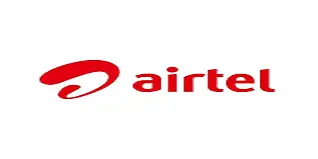
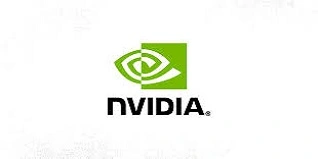
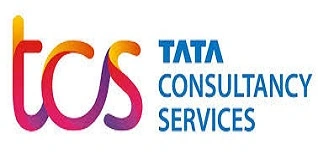

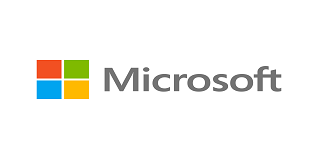
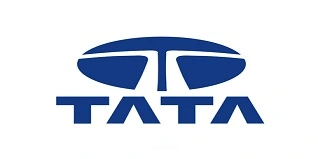

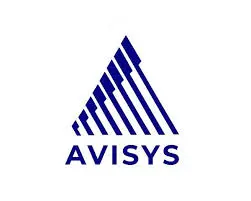
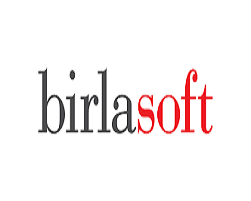



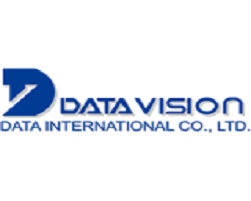
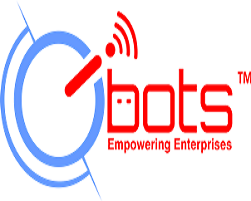
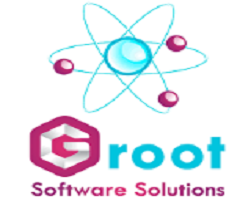
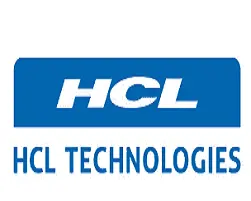
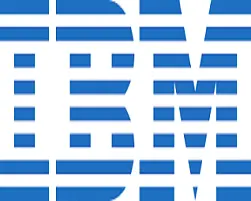
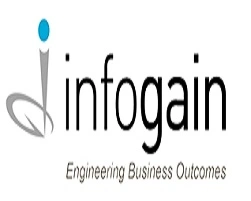
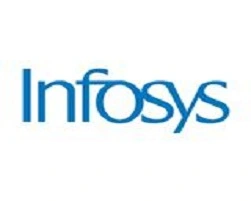
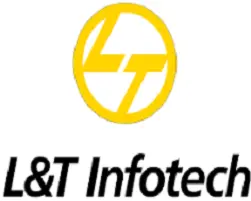
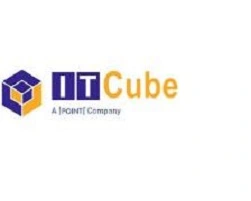
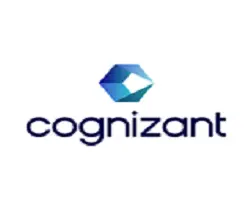
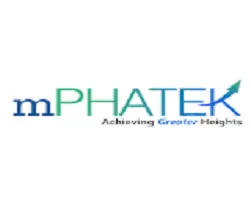
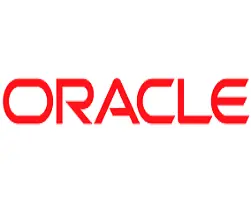
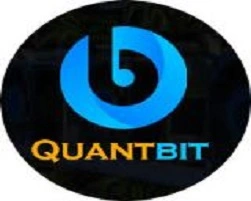
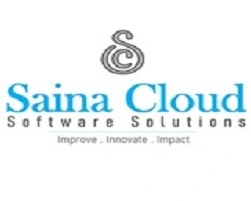




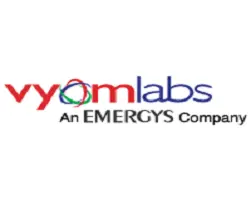
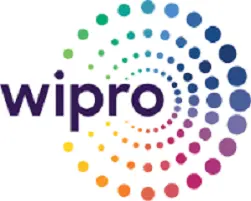
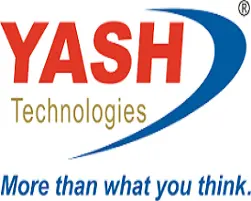
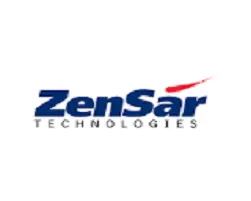
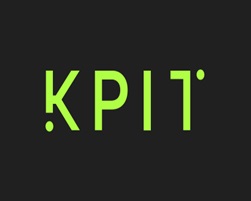
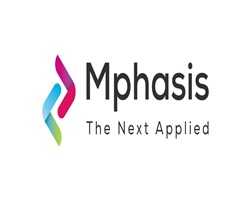
An AWS Certified Solutions Architect is a professional who has demonstrated expertise in designing and deploying scalable, reliable, and secure applications using Amazon Web Services. This certification validates skills in cloud architecture, cost optimization, and implementing AWS services.
The main responsibilities include designing cloud infrastructure, ensuring scalability, implementing security measures, optimizing costs, and guiding organizations in cloud migration and adoption strategies.
Key skills include knowledge of AWS core services (EC2, S3, RDS, etc.), cloud architecture design, security best practices, cost management, and proficiency in networking and storage solutions.
Industries like e-commerce, healthcare, finance, media, gaming, IoT, manufacturing, and education benefit significantly from AWS Solutions Architects for their cloud computing needs.
This certification enhances your credibility, increases job opportunities, and provides access to higher-paying roles. Certified professionals are in high demand across various industries adopting cloud technologies.
The Associate certification focuses on fundamental skills in designing and deploying AWS solutions, while the Professional level validates advanced expertise in complex cloud architectures and large-scale migrations.
They use AWS tools like Cost Explorer, Trusted Advisor, and Savings Plans. They also design cost-effective solutions by choosing appropriate instance types, leveraging Spot Instances, and implementing efficient storage options.
Essential services include EC2, S3, RDS, Lambda, VPC, CloudFront, CloudWatch, IAM, DynamoDB, and Route 53. These services form the foundation of most AWS architectures.
Serverless architecture reduces operational overhead, ensures automatic scaling, and offers cost efficiency. AWS services like Lambda, API Gateway, and DynamoDB are commonly used in serverless solutions.
They use encryption (at rest and in transit), IAM for access control, AWS WAF for application security, and compliance tools like AWS Artifact to meet regulatory standards.
They assess the current infrastructure, plan migration strategies, use tools like AWS Migration Hub, and ensure a smooth transition with minimal downtime.
They implement multi-region deployments, automate backups using AWS Backup, and use AWS Elastic Disaster Recovery to enable rapid recovery during outages.
They optimize performance by using caching services like CloudFront and ElastiCache, designing high-availability architectures, and selecting appropriate compute and storage resources.
Beginners can start with AWS Certified Cloud Practitioner to build foundational knowledge before advancing to the AWS Certified Solutions Architect – Associate level.
Preparation typically takes 2-4 months, depending on prior experience. It involves studying AWS services, hands-on practice, and solving mock exams to understand the exam pattern.
Basavanagudi | HSR Layout | Sadashivanagar | Jayanagar | Koramangala | Whitefield | Banashankari | Marathahalli | BTM Layout | Electronic City | Rajajinagar | Domlur | Indiranagar | Malleshwaram | Yelahanka | Cooke Town | Nagarbhavi | Bannerghatta Road | Chandapura | Dasarahalli | Devanahalli | Anandnagar | Avenue Road | Byatarayanapura
I had an amazing experience with this service. The team was incredibly supportive and attentive to my needs. The quality of the work exceeded my expectations. I would highly recommend this to anyone looking for reliable and professional service."
I had an amazing experience with this service. The team was incredibly supportive and attentive to my needs. The quality of the work exceeded my expectations. I would highly recommend this to anyone looking for reliable and professional service."
I had an amazing experience with this service. The team was incredibly supportive and attentive to my needs. The quality of the work exceeded my expectations. I would highly recommend this to anyone looking for reliable and professional service."
I had an amazing experience with this service. The team was incredibly supportive and attentive to my needs. The quality of the work exceeded my expectations. I would highly recommend this to anyone looking for reliable and professional service."
I had an amazing experience with this service. The team was incredibly supportive and attentive to my needs. The quality of the work exceeded my expectations. I would highly recommend this to anyone looking for reliable and professional service."
The AWS Certified Solutions Architect certification is a globally recognized credential that validates expertise in designing and deploying scalable, reliable, and secure applications on Amazon Web Services (AWS). This certification is essential for professionals aiming to excel in cloud architecture, making it one of the most sought-after certifications in the IT industry.
AWS Certified Solutions Architects are in high demand across various industries, including finance, healthcare, retail, and IT services. Common roles include:
The AWS Certified Solutions Architect certification empowers professionals to design scalable, secure, and cost-effective cloud solutions. Its practical applications span numerous industries, helping organizations achieve digital transformation, optimize operations, and enhance service delivery. Below are the key applications of an AWS Certified Solutions Architect in various sectors:
1. Cloud Infrastructure Design and Optimization
AWS Certified Solutions Architects design robust and scalable cloud architectures tailored to business requirements. Their expertise enables organizations to:
Deploy highly available applications using AWS services like EC2, RDS, and Auto Scaling.
Optimize cloud costs by selecting appropriate instance types, storage solutions, and cost-control mechanisms.
Implement multi-region deployments for global reach and disaster recovery.
Use Case:
A retail company scaling its e-commerce platform uses an architect’s skills to ensure seamless performance during peak shopping seasons by leveraging AWS Elastic Load Balancing and Auto Scaling.
2. Migration of On-Premises Systems to AWS
Migrating legacy systems to the cloud requires careful planning and execution. AWS Certified Solutions Architects guide organizations in:
Assessing workloads for cloud readiness.
Designing migration strategies using AWS Migration Hub, Server Migration Service (SMS), and Database Migration Service (DMS).
Ensuring minimal downtime during migration while maintaining data integrity.
Use Case:
A financial institution modernizes its IT infrastructure by migrating databases and applications to AWS, reducing operational costs and improving scalability.
3. Implementation of Secure Cloud Solutions
Security is paramount in cloud computing. AWS Certified Solutions Architects:
Design systems that comply with industry standards, such as GDPR, HIPAA, and ISO.
Implement secure identity and access management using AWS IAM.
Use encryption tools like AWS Key Management Service (KMS) for data protection.
Use Case:
A healthcare provider ensures patient data security by implementing HIPAA-compliant storage solutions on AWS S3 with server-side encryption.
4. Development of High-Performance Applications
Certified professionals optimize performance by selecting the right combination of AWS services. They focus on:
Low-latency architecture for real-time applications using AWS Lambda and API Gateway.
Efficient caching solutions with Amazon CloudFront and ElastiCache.
Scaling applications dynamically based on demand.
Use Case:
A gaming company builds a multiplayer platform with real-time updates, leveraging AWS GameLift and DynamoDB for a seamless player experience.
5. Disaster Recovery and Business Continuity Planning
Businesses need robust disaster recovery solutions to minimize downtime during disruptions. AWS Certified Solutions Architects:
Design failover architectures using AWS Route 53 and multi-region deployments.
Automate backups with AWS Backup and Glacier for long-term data storage.
Enable rapid recovery of services using AWS Elastic Disaster Recovery (AWS EDR).
Use Case:
A media company ensures uninterrupted content delivery during outages by implementing a multi-region setup with automatic failover mechanisms.
6. DevOps Implementation and Automation
AWS architects streamline development and operations processes, enabling faster delivery cycles. They implement:
Continuous Integration/Continuous Deployment (CI/CD) pipelines using AWS CodePipeline and CodeBuild.
Infrastructure as Code (IaC) using AWS CloudFormation and AWS CDK.
Automated monitoring and alerts with AWS CloudWatch and AWS Systems Manager.
Use Case:
A software development firm reduces time-to-market for new features by automating deployments using AWS CodeDeploy and Lambda.
7. Data Analytics and Big Data Solutions
Data-driven decisions are critical for modern businesses. AWS Certified Solutions Architects:
Design data pipelines with AWS Glue and Kinesis for real-time analytics.
Implement data lakes and warehouses using Amazon S3 and Redshift.
Utilize machine learning models through Amazon SageMaker for predictive insights.
Use Case:
An e-commerce company leverages AWS analytics tools to track customer behavior and optimize its marketing strategies.
8. IoT Solutions Development
With the rise of IoT, certified architects help organizations manage IoT ecosystems effectively. Applications include:
Designing IoT solutions using AWS IoT Core and Greengrass.
Securing IoT devices and their data with AWS IoT Device Defender.
Analyzing IoT data using AWS IoT Analytics.
Use Case:
A smart city project implements AWS IoT solutions to monitor energy usage and optimize utility services.
9. Supporting Artificial Intelligence and Machine Learning Initiatives
AWS Certified Solutions Architects design architectures that support AI/ML workflows by:
Integrating AWS AI services like Amazon Rekognition, Polly, and Lex.
Building and training machine learning models using Amazon SageMaker.
Deploying models at scale using EC2 instances optimized for ML workloads.
Use Case:
A manufacturing company uses AWS AI tools to enhance quality control by identifying defects in products with image recognition.
10. Enhancing Media Streaming Services
Media and entertainment industries rely on AWS for reliable streaming solutions. Architects:
Design content delivery networks (CDNs) using Amazon CloudFront.
Optimize video transcoding with AWS Elemental MediaConvert.
Implement secure content streaming with DRM solutions.
Use Case:
A global streaming service ensures buffer-free video playback across geographies using AWS CloudFront and MediaLive.
Radical Technologies is the premier Industry AWS Certified Solutions Architect Institute in Bengaluru, dedicated to providing world-class training and empowering students and professionals to excel in cloud architecture. With a proven track record, we are renowned for delivering top-quality Industry AWS Certified Solutions Architect Training in Bengaluru that combines theoretical knowledge with hands-on practical experience.
Our comprehensive Industry AWS Certified Solutions Architect Course in Bengaluru is designed to cater to beginners and experienced professionals alike, offering in-depth insights into cloud architecture, AWS services, and best practices. We also provide tailored Industry AWS Certified Solutions Architect Corporate Training in Bengaluru, ensuring organizations can enhance their team’s skills to meet dynamic business needs.
At Radical Technologies, we understand the need for flexibility, which is why we offer a range of learning options, including Industry AWS Certified Solutions Architect Online Classes in Bengaluru. These classes ensure you can learn from anywhere while maintaining the quality of our in-person training programs. Our Industry AWS Certified Solutions Architect Online Course in Bengaluru is structured to provide step-by-step guidance, enabling you to master AWS architecture and achieve certification success.
Our highly skilled trainers bring real-world experience to every session, whether it’s classroom-based Industry AWS Certified Solutions Architect Classes in Bengaluru or Industry AWS Certified Solutions Architect Online Training in Bengaluru. They ensure that students are well-prepared for the Industry AWS Certified Solutions Architect Certification in Bengaluru, equipping them with the skills needed to tackle real-world challenges confidently.
With a focus on career development, we also offer specialized Industry AWS Certified Solutions Architect Online Certification in Bengaluru, helping professionals enhance their credentials and stand out in the competitive job market.
Join Radical Technologies, the leading institute in Bangalore, and take the next step in your career with our expertly designed Industry AWS Certified Solutions Architect Course Training in Bengaluru. Let us help you become a certified AWS solutions architect and achieve your professional goals.


(Our Team will call you to discuss the Fees)


(Our Team will call you to discuss the Fees)